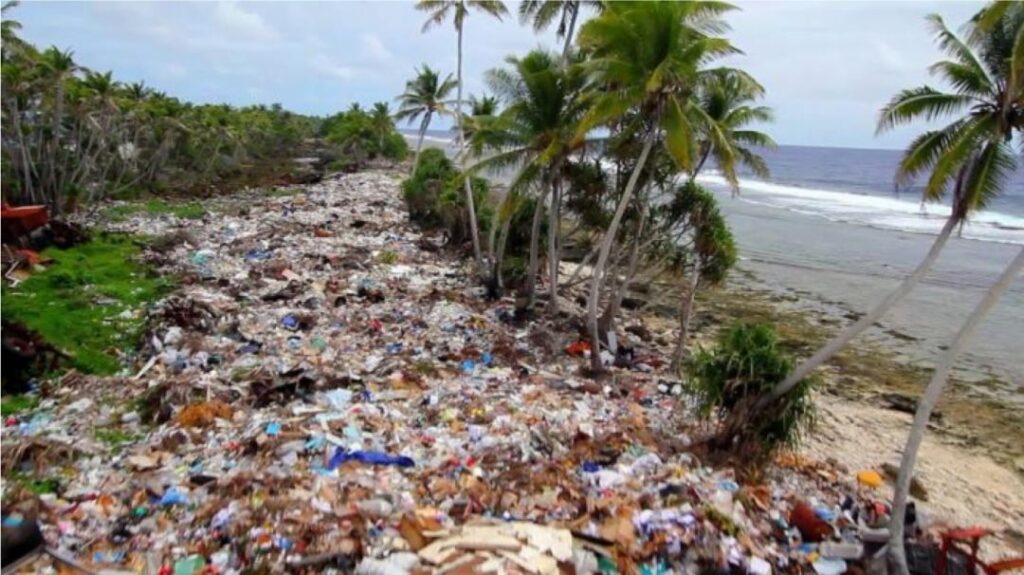Sri Lanka (Commonwealth Union)_ The European Union-funded project named PROMISE led by India involves thirty nations in the mission. It attempts to minimize marine pollution by local small and medium-sized businesses, which lack the capacity to apply circular economy initiatives, over a period of four years. Due to microplastic contamination in Asian waters, the fish stock in Sri Lanka has decreased from 300,000 to 53,000 tonnes.

The Lakshadweep Sea, commonly known as the Laccadive Sea, which borders southern India, the Maldives, and Sri Lanka, will be the target of the international project involving 30 nations to minimize plastic garbage created by marine transport and the fishing sector. Sri Lanka is one of the partners in the “Prevention of Marine Litter in the Lakshadweep Sea” (PROMISE) project, which is led by India and funded by the European Union through the SWITCH-Asia Programme. Many government agencies and tourism industry players are also involved in the project.

According to environmental activists Chaminda Bandara and Rasith Malalasekera, Sri Lanka has continuously expanded its import of plastic, with more than 500,000 metric tons (MT) of virgin plastic yearly, straining the national waste management infrastructure. According to the data, Sri Lanka mismanages 1.59 million tonnes of plastic garbage yearly, of which about half are released into canals, rivers, and finally the ocean, negatively impacting marine ecosystems. However, at present, only 33% of all plastic garbage is collected, and only 3% of that is recycled on a national scale. Therefore, small to medium collectors and recyclers have difficulty conforming to environmental regulations and producing value addition due to the high costs, which include the technology required to adopt and implement circular economic strategies.
The Sri Lankan government has taken initiatives to prevent plastic pollution and upgrade waste management, including implementing an Extended Producer Responsibility (EPR) program to limit plastic usage. In the meantime, microplastic contamination is the primary cause of rapidly decreasing fishing stocks around the coast of Sri Lanka, with fish resources falling from 300,000 tonnes to 53,000 tonnes in recent years. Moreover, plastics also impact marine life and the ecosystem.
According to sources from the Marine Environment Protection Authority, “PROMISE is a 4-year project (2020-2024) supported by the European Union (EU) under the SWITCH-Asia Programme and promotes sustainable consumption and production in small and medium enterprises (SMEs). The project aims to prevent the leakage of wastes from land-based sources into the sea and will address many maritime issues in the short-term as well as in the long term.”
The commercial sector, non-governmental organizations, and communities will support USAID in reducing, reusing, and recycling plastic goods that harm the health and environment of Sri Lankans. The initiative will also address the worldwide issue of marine plastic waste, since huge amounts of plastic waste are entering the world’s oceans every minute, amounting to nearly eleven million tons of waste yearly. This is an urgent issue that must be tackled immediately.
According to marine biologists Nimali Senanayaka and Randesh Gamlath, in December, the US Agency for International Development (USAID) started a five-year project in Sri Lanka and the Maldives to minimize single-use plastics by reducing industrial use of plastic and enhancing integrated solid waste management practices in both nations. According to Jenny Correia Nunes, chief of cooperation of the EU delegation to Sri Lanka and the Maldives, “While marine pollution is a transboundary issue, we need to look at national solutions, considering that the economy of Sri Lanka depends substantially on its marine and coastal environments”.








